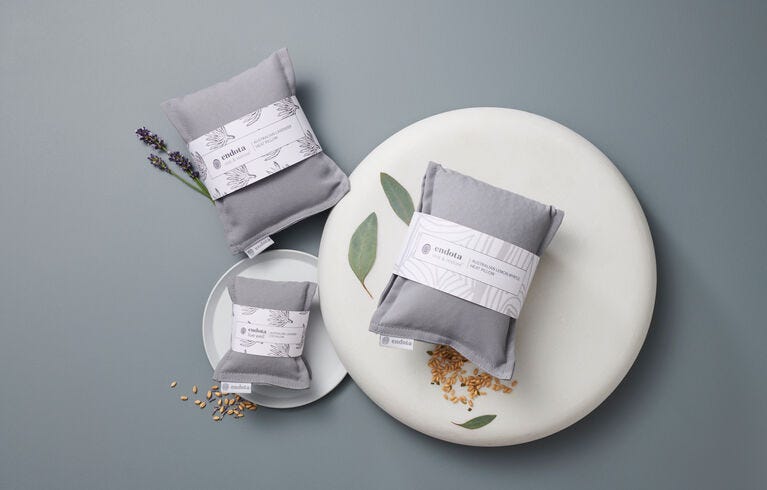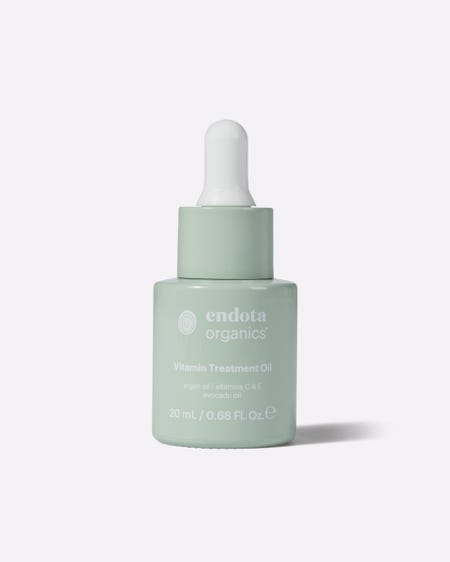How to care for your body at different stages of your cycle
Menstrual cycles are more than just a period. In fact, female hormones are incredibly powerful and play an integral role in determining how we feel physically, spiritually and emotionally at all stages of the cycle.
From menstruation to ovulation, keep reading for more about the four distinct stages of the cycle, as well as how to care for our bodies during each one.

Stages of the menstrual cycle
While every woman is different, the average cycle lasts for 28 days and consists of four distinct phases: menstruation, the follicular phase, ovulation, and the luteal phase. You might notice that your mood, energy and skin will shift between them. Understanding and anticipating these shifts can help you adapt your self care and wellness practices to suit your cycle.
Menstrual phase: Days 1-5
Most will agree that the menstrual phase is the trickiest time, characterised by the shedding of the uterine lining. Estrogen and progesterone levels are low, leading to irritability and potential mood swings. Physical symptoms, like cramping, back pain, tiredness and bloating are also common.
During this phase, opt for slow, low-impact movement, such as a yoga flow on endota Retreat — we suggest Sasha Hawley’s Chakra Activation. Studies have found that women who exercise regularly are less likely to suffer menstrual pain, cramps and mood disturbance. While it’s uncertain why exercise is helpful for PMS, studies demonstrate that exercise can release ‘happy’ hormones such as serotonin and endorphins, which may explain the benefit (The Royal Women’s Hospital). Serotonin is also a known natural pain relief and exercise improves circulation, both reducing period cramp related pain.
Heat therapy works to relax muscles, such as the uterus, and improve circulation, which reduces cramping and associated pain. Try relieving painful period cramps with the endota Heat Pillows. Made with Australian wheat and available in lavender and lemon myrtle, these packs soothe both physically and emotionally with their warmth and botanical aromas. Alternatively, soak in a warm bath with a few drops of essential oil for some relieving aromatherapy benefits.
The Follicular phase: Days 6-13
The follicular phase usually overlaps with menstruation but signals an increase in energy levels thanks to a surge in estrogen. Take advantage of this increased energy with high-intensity workouts like HIIT, long runs or a more rigorous pilates session. Dial up on leafy greens, cruciferous vegetables, eggs, nuts and fish as well, to support your body through this increased movement. Our favourite recipe during this time is quinoa quiche, containing protein-rich eggs, leafy greens and cruciferous vegetables, such as broccoli.
As for your complexion, things should be levelling out around now, so if you want to test out a new product or ingredient, consider this the opportune moment.
Ovulation: Day 14
Ovulation is when your ovaries release a mature egg in the hope of fertilisation. At this time, estrogen is at its peak! This usually means higher libido, happy moods, radiant skin and high energy — the perfect time for romantic getaways, nights out with friends and cardio workouts. Why not try this Energy Boost workout with Alexandra Bartlett on endota Retreat? And if you're wanting to conceive, this is your window.
The Luteal Phase: Day 15-28
If you don’t fall pregnant during ovulation, hormone levels (specifically estrogen and progesterone) will begin to drop, signifying the onset of your next period. Towards the later stages of this luteal phase, you might begin to notice PMS symptoms creeping back in, like sore breasts, bloating, headaches, cravings and fatigue. To promote improved rest, try our Lavender Eye Pillow - the soothing blend of lavender and gentle weight are sure to relax you into a restorative slumber.
At this time, it’s important to listen to your body and act intuitively. If you feel up to it, incorporate slow movement practices like walks, swimming, yoga or pilates. Your endota Heat Pack might also make a reappearance, as the warmth will help relieve any discomfort.
Foodwise, while it's tempting to reach for the ice cream, nourishing wholefoods will help fuel your body and raise your energy levels. You can find recipes for countless soups, stews and other hearty dishes, such as Beef Bourguignon on endota Retreat.
Finally, this is also the phase where your oil production will increase, leading to those often dreaded period pimples. Be sure to stick with regular cleansing, and incorporate exfoliators or masks to minimise congestion — we love the Charcoal Detox Mask for this very reason.
For more information on the intricate topic of female hormonal health, read our blog on menopause.
Article source: The Royal Women’s Hospital, Exercise, Diets and Periods.




